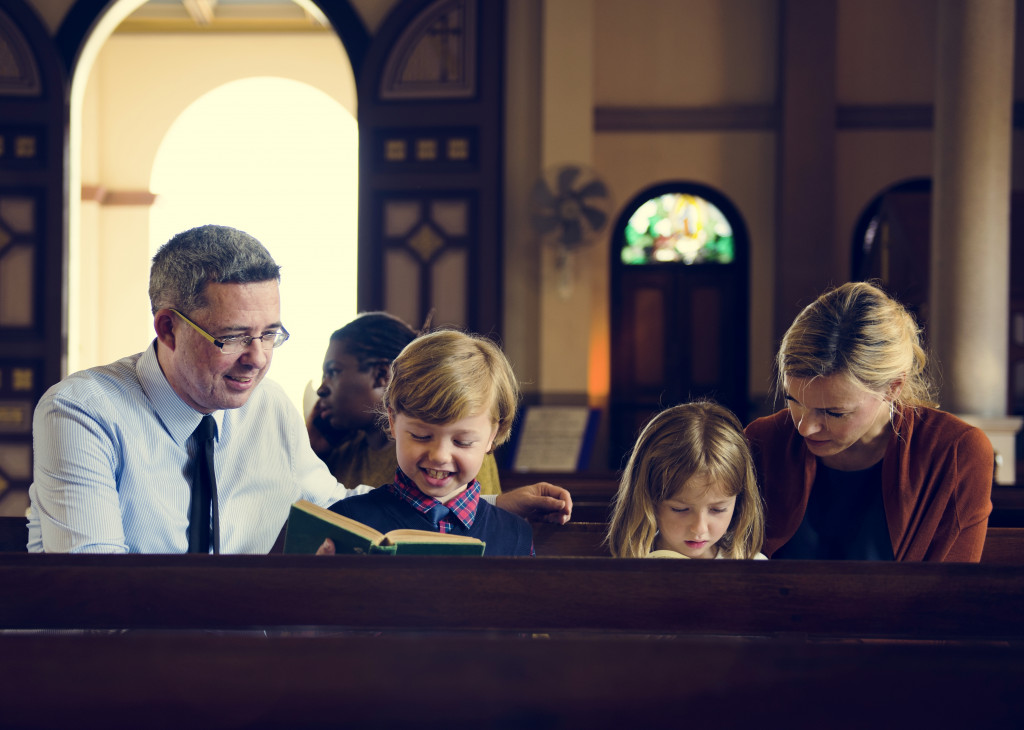Worship centers are essential parts of many communities throughout the globe, and spiritual leaders are typically well-respected and significantly affect behavior. Aside from this impact, faith-based organizations also function as healthcare providers in many areas. People may seek support, encouragement, and comfort from their religion or place of worship and faith-based organizations. Parents may not know that faith-based organizations – those that claim to be both charitable and religious – are often dedicated to assisting individuals in challenging circumstances by giving essentials such as food, housing, medical services, and money for utility or home payments.
What’s a Faith-based Organization?
A faith-based organization is a collection of people who are connected by their religious or spiritual convictions. Historically, faith-based organizations have focused their efforts on fulfilling their members’ religious, economic, and cultural needs. However, when ministries encourage cognitive and emotional well-being, discourage unlawful or dangerous activity, and support ethical behavior, they indirectly improve their health. Recognizing the link between religious views and healthcare, many faith-based organizations establish health ministries and expand them to encompass whole communities.
These institutions, known as FBOs and other related institutions like CAPP-USA, are usually associated with a particular church, religious group, or private foundation. They offer services to community members in various ways; many run clothing and food banks year-round or have funds aside from financial donations that may be used to assist individuals who fulfill specific criteria pay down debts. However, all faith-based organizations have one thing in common: they work to help financially or otherwise disadvantaged families.
Religious beliefs and rituals are often deeply woven into the fabric of everyday life. FBOs often stem from and expand on religious groups’ conviction that they have a moral obligation to assist people in need and better the human condition. FBOs may be more concerned with ethical problems than secular groups, such as family life norms and the spiritual foundation of illness. The capacity of FBOs to root their activity in religion may increase their impact on communities by allowing them to invoke people’s moral duty. Every day, FBOs strive to improve the world and their communities by assisting people in need. They play a massive role in delivering health information and treatment to people all around the globe. FBO hospitals and clinics are often the most recognized and trusted providers of health care in communities of all sizes. Here is why they are essential to the community.
Support and Prayer Through Faith
Residents and staff alike find it reassuring to depend on the practices of prayer, scripture reading, and the capacity to receive faith-based assistance in both problematic and ordinary situations. According to U.S. News & World Report, “in recent years, a growing percentage of thorough investigations have documented that spirituality – including prayer, meditation, and religious service participation — improves health in ways that biology hasn’t completely explained.” Regular worshipping and other religious actions seem to increase life span, enhance immunity, enhance the body’s reaction to stress, and increase various indicators of physical health, among other things.”

Providing Improved Mental Health
Those with a strong spiritual life and a way to work through challenging circumstances have a better perspective. A vital religion has been shown to provide consolation and resilience, especially when confronted with sickness or changes in their life.
Supporting a Mission-Based on Faith
Religious beliefs and convictions serve as a foundation for deep dialogue on human frailty, vulnerable economic and social systems, and collaborative efforts to promote individual well-being, respect, equality, and civic harmony. Many of these faith-based organizations work with the local faith communities to support contributors and beneficiaries of assistance by strict adherence to the moral duty to assist all individuals in need. They do this regardless of religion, respecting humanitarian relief values and guidelines, and strengthening a foundation of cooperation and social regard for the reconstruction of plural communities. It should also be emphasized that international humanitarian standards are compatible with, and ultimately founded on, the fundamental theological views of the leading global faiths. Therefore the activities of humanitarian organizations and faith-based organizations complement one another.
As faith-based and other community-based groups grow more proficient and at ease with utilizing connections for social and spiritual solidarity throughout the crisis, the outcome may be more excellent networks of ties on personal, communal, and organizational levels. Congregations offer physical infrastructure and intricate social networks that may be used to address a variety of problems. Through expanded social networks and connections with other community institutions, they also offer informal assistance, nutrition, medical services, and income and occupational possibilities. They assist in promoting health and optimism throughout a community, which is why they are essential lightworkers in society. Their aim is straightforward: to lift individuals from disadvantaged areas by collaborative work and faith.
